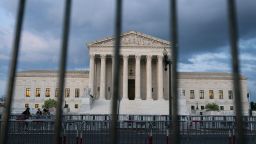Key parts of a Florida law restricting social media platforms’ ability to moderate content likely violate the First Amendment, a federal appeals court ruled Monday, in a victory for the tech industry amid a wider battle over digital speech.
The opinion by a three-judge panel in the Eleventh Circuit Court of Appeals comes ahead of a hotly anticipated Supreme Court decision involving a similar Texas law. Both cases are viewed as a bellwether for social media and could determine the future not only of the tech industry, but all Americans’ First Amendment rights.
In a statement, one of the technology advocacy groups behind both lawsuits, the Computer and Communications Industry Association, said the ruling was welcome news.
“When a digital service takes action against problematic content on its own site 一 whether extremism, Russian propaganda, or racism and abuse 一 it is exercising its own right to free expression,” said CCIA President Matt Schruers. “We will continue to fight for the First Amendment rights of digital services to engage in the editorial judgments they need to make to protect their users.”
Monday’s decision upholds portions of a temporary injunction that had blocked the Florida law, SB 7072, from going into effect last year. The Florida law seeks to allow political candidates to sue social media platforms over allegations of censorship, and imposes a number of requirements on tech platforms’ content moderation activities.
According to the panel’s opinion, the court held that “the Act’s content-moderation restrictions are substantially likely to violate the First Amendment,” and that social media platforms are considered private actors that benefit from First Amendment protections against compelled speech.
The court held as unconstitutional the Florida law’s provisions with regard to social media companies’ handling of posts by and about political candidates, as well as on the banning of candidates, and its requirements that tech platforms explain each content moderation decision. The court held that other provisions of the law were more reasonable and overturned the injunction against those provisions before sending the matter back to the lower court.
“We are pleased the court recognized the state’s authority to rein in social media companies and upheld major portions of Florida’s law leading the way in doing so,” Florida Attorney General Ashley Moody said in a tweet. “We will continue to vigorously defend Florida’s authority to demand accountability from Big Tech.”
The Supreme Court is poised to address similar questions about platform liability in an upcoming decision about whether to let Texas’s law remain in effect. Texas’s law enables any user in the state to sue social media platforms if they believe they’ve been silenced or censored. Texas and Florida have argued that the First Amendment has nothing to do social media platforms because their laws designate the companies as “common carriers” akin to phone companies and railroads.
In Monday’s decision, the Eleventh Circuit rejected that argument.
“We hold that it is substantially likely that social-media companies—even the biggest ones—are ‘private actors’ whose rights the First Amendment protects,” the court said.
It remains to be seen whether the Supreme Court will agree.






